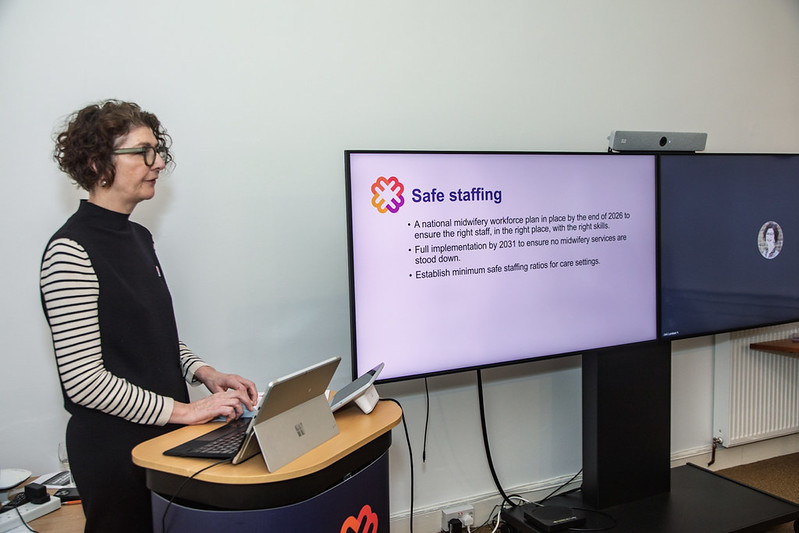The RCM’s Senior Organiser in the North of England, Rae Trotter, looks ahead to this year’s International Day of the Midwife and the key role midwives play in crisis situations across the world.
As society navigates a world facing increasing challenges, from natural disasters to conflicts and the ongoing impact of climate change, the role of midwives stands out as a symbol of hope and strength. The theme for International Day of Midwives (IDM) 2025, Midwives: Critical in every crisis, shines a light on the invaluable contributions we, and our fellow midwives across the world, make, particularly in times of dire need.
It’s a harsh reality that crises disproportionately impact women and girls, leaving them vulnerable to heightened risks, from pregnancy complications to gender-based violence (GBV). In such contexts, access to essential health services can diminish, further exacerbating their plight.
Amid these challenges, midwives stand as vital first responders. They are not only the frontline workers offering compassion and care but also the lynchpins in health systems that must be prepared for emergencies. Faced with limited resources, as dedicated professionals we deliver up to 90% of sexual, reproductive, maternal, newborn, and adolescent health (SRMNAH) services, demonstrating remarkable commitment, even during humanitarian crises.
Midwives play an essential role in ensuring the health and safety of mothers and their newborns. Their contributions include:
- Providing safe births, antenatal, and postnatal care: The journey of motherhood can be fraught with complications, particularly in crisis scenarios. Midwives offer essential care to ensure safe deliveries and support for mothers throughout the perinatal period.
- Offering contraceptive and abortion care: Access to comprehensive reproductive health services is critical, yet often endangered in crisis situations. Midwives can navigate challenging conditions to meet these needs compassionately and professionally.
- Supporting breastfeeding: In emergencies, nutrition becomes paramount. Midwives educate families and support breastfeeding practices, ensuring that newborns receive safe, clean, and reliable nutrition even in unstable environments.
- Community preparedness and education: Midwives are not just care providers; they also serve as educators, imparting essential knowledge and tools that empower communities to stay safe and healthy during emergencies.
While the international issues faced by midwives and women are well-documented, we must not overlook the local contexts especially when local adverse weather conditions disrupt healthcare services, ensuring mums and babies continue to receive safe, timely and compassionate care. We have witnessed firsthand how storms and power outages can lead to dire situations, such as women struggling to safely feed their infants during food shortages or disrupted supply chains, particularly for those who rely on formula feeding. Domestic violence increases in time of crises as well as migration and increase in refuges numbers.
Following the recent red weather warning in January, this is an ideal time for NHS Trusts and Boards to come together to develop adverse weather condition policies that effectively address these challenges.
As we move forward, it is crucial for healthcare systems, policy-makers, and communities to recognise and support the pivotal role of midwives in every crisis. Empowering them through training, resources, and policies that facilitate their work can transform the landscape of maternal and newborn health, even amid the most challenging circumstances.
On this International Day of Midwives, let us not only celebrate their contributions but also commit to creating a world where every midwife has the support they need to continue being critical champions for women, girls, and gender-diverse individuals in every crisis. Together, we can build resilient communities prepared to face whatever challenges lie ahead.

